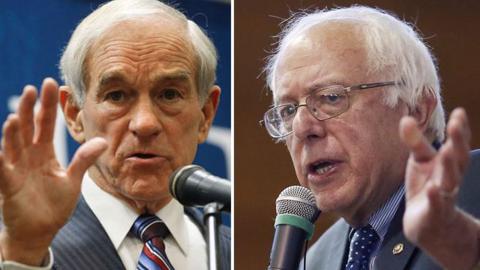The American Health Care Act (AHCA) has sparked a fierce debate online, in the media, and among policymakers: Is health care a right all people are entitled to?
https://twitter.com/BernieSanders/status/841049916113739780
https://twitter.com/mitch_huested/status/841761199922462720
https://twitter.com/activist360/status/841446665127153664
https://twitter.com/GeorgeTakei/status/839510413721145345
https://twitter.com/Gormogons/status/841672733893238784
The words "right," "privilege," and "commodity" are thrown around a lot during this debate. Let's quickly define some terms.
- A "right" is defined as "a moral or legal entitlement to have or obtain something or to act in a certain way."
- A "privilege" is defined as "a special right, advantage, or immunity granted or available only to a particular person or group of people."
- A "commodity" is defined as "an article of trade or commerce, especially a product as distinguished from a service."
Understanding a clear definition of these terms may help people decide how whether or not they believe health care is a right. Do people have a moral and/or legal entitlement to health care? Or, is health care a special right reserved only to a particular group of people -- people who can afford it, for example?
The last tweet above hits the argument against health care being a right pretty well. The core principle of the argument is that one person does not have a right to another person's labor. Or, as Dr. Ron Paul put it in a recent video, if you support the idea that people have a right to health care then you are saying people have a right to take something from someone else.
"The basic assumption that you have a right to get someTHING from somebody else means you have to endorse the concept of theft," Paul argues.
Watch the full video:
https://www.youtube.com/watch?v=dXSD2SUIG4M
On the other side, people who argue that health care is a right believe that every man, woman, and child, regardless of socioeconomic status, should have access to health care and object to the notion that quality health care should be reserved only to people who are wealthy enough to afford it.
U.S. Senator Bernie Sanders has long been a vocal proponent of the idea that health care is a right. He has argued in Congress, since his time in the U.S. House of Representatives, that the right to health care comes from being a human being.
Watch Sanders speak about health care on Fox News:
https://www.youtube.com/watch?v=_btPxHUVnvc&spfreload=10
Ron Paul and Bernie Sanders have polar opposite views of the role government should play in health care.
"If understood our economic policy, they would say, 'How is the best way to deliver health care to the maximum number of people at the best price?' And if you understood the market, you would say, 'Keep the government out of it!'" Paul says.Sanders, on the other hand, argues for a government-funded, single-payer health care system like the system in Canada.
"The Canadian single-payer system ... is not a perfect system, but in terms of access, in terms of simplicity, in terms of comprehensive care, in terms of cost containment, it works far better than our system does," he argued on the House floor in 1993.
Health care can be an emotional topic. When it comes to the American Health Care Act, opponents on the "Left" point to the CBO report that shows millions of people losing their health insurance and Medicaid coverage under the bill. Opponents on the "Right" say it still doesn't do enough to lessen government's role in the health care system. Supporters, however, point to how much it will save taxpayers and cut the deficit.
What do you think? What role should government have in health care? Is health care a right, or is it a privilege? Should health care be treated as a commodity?
